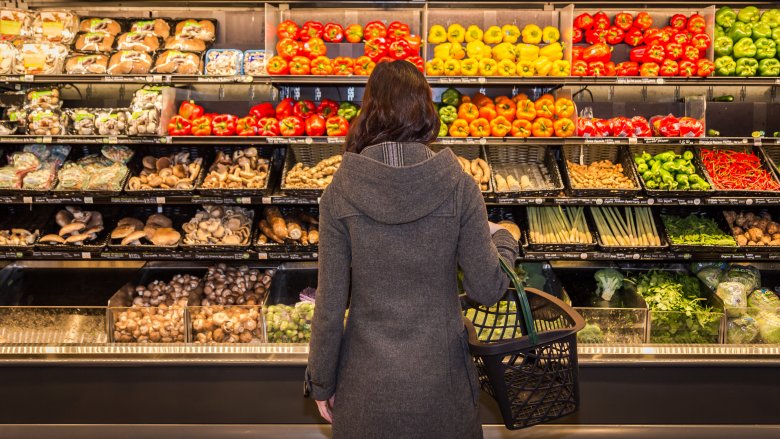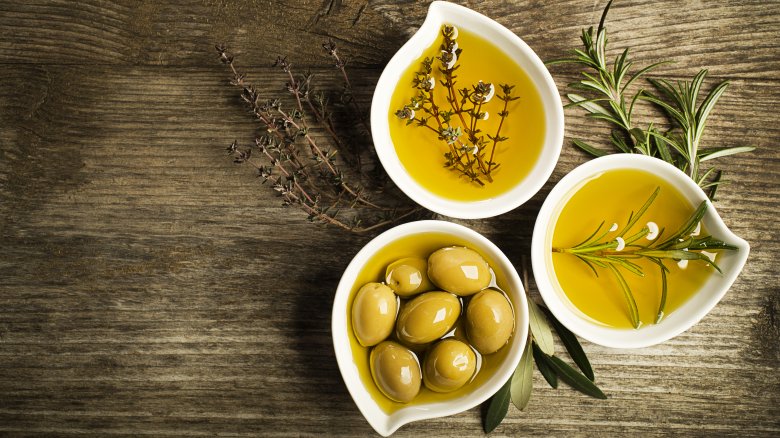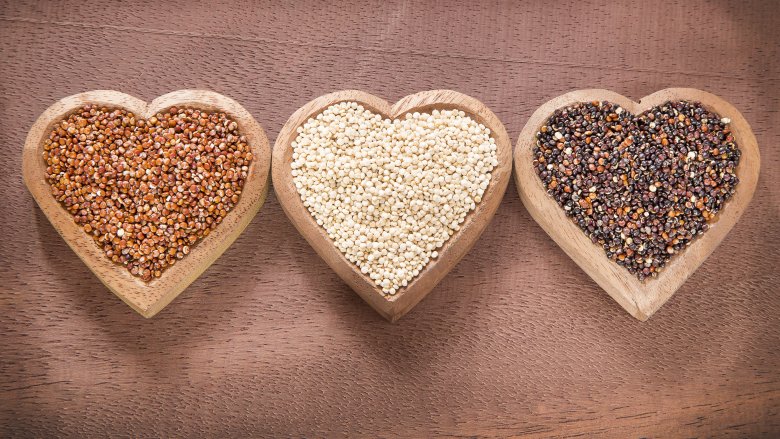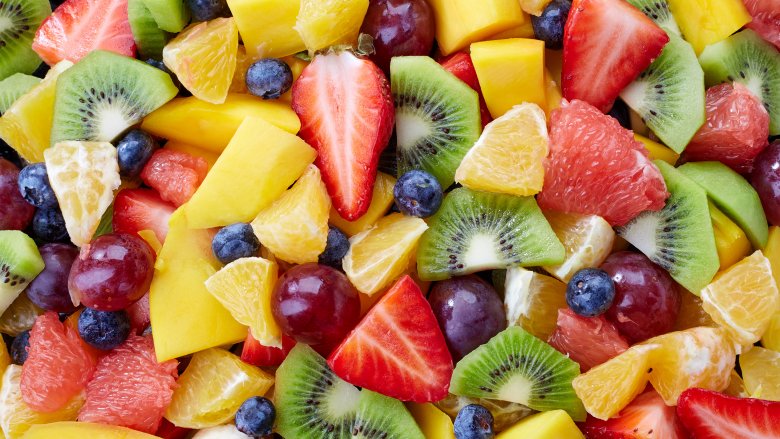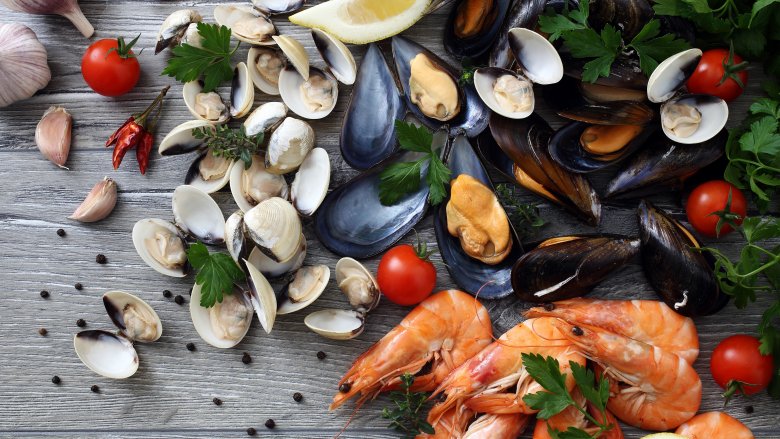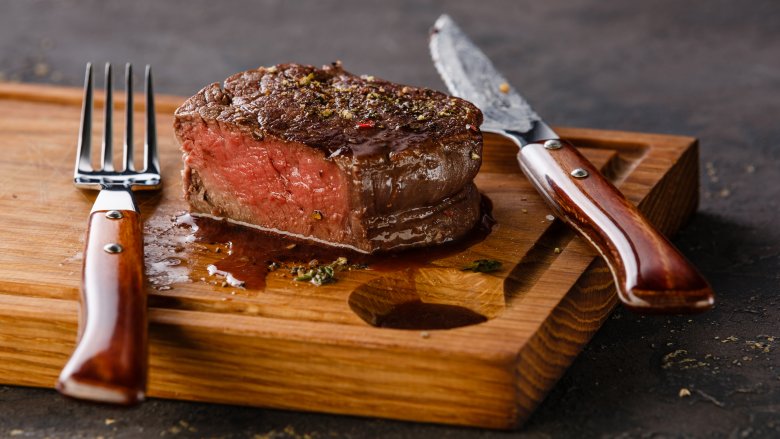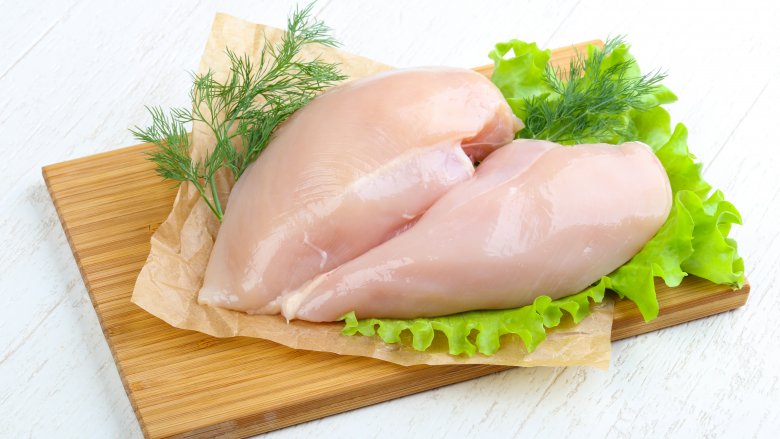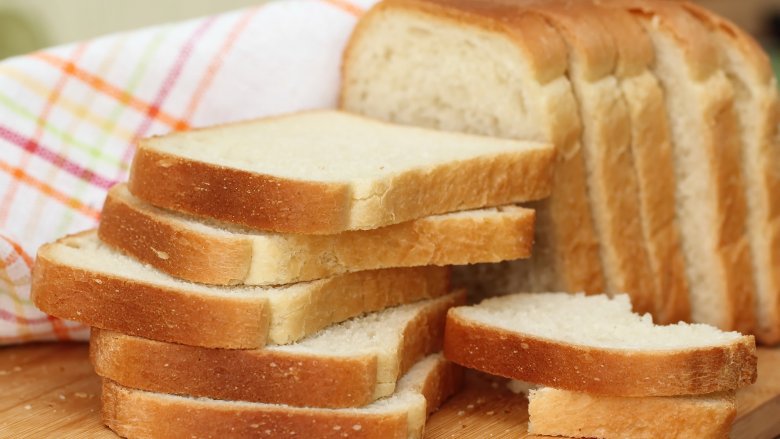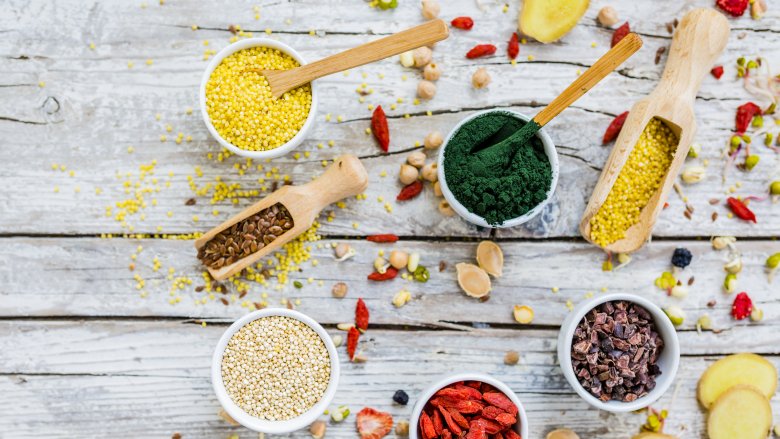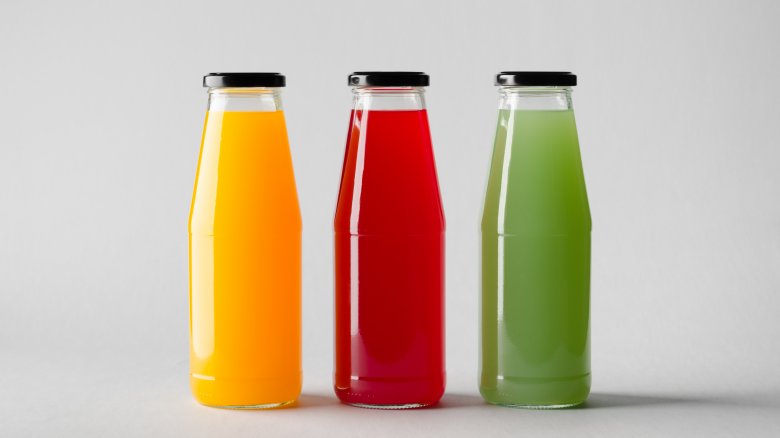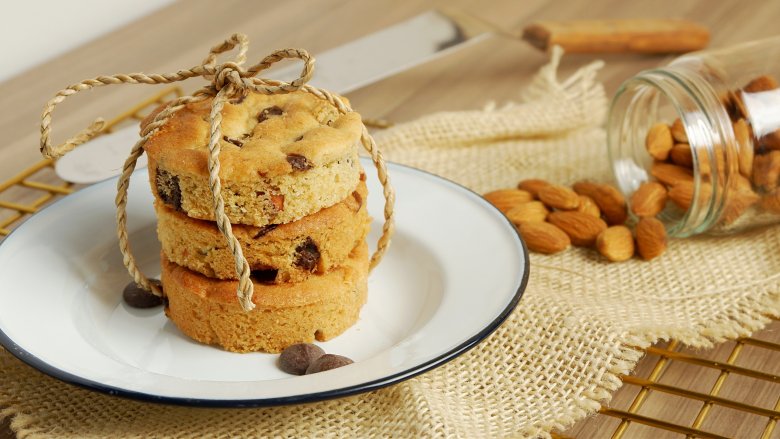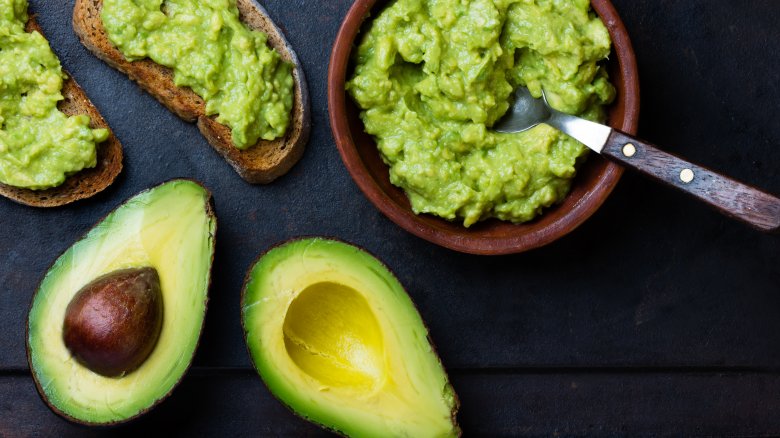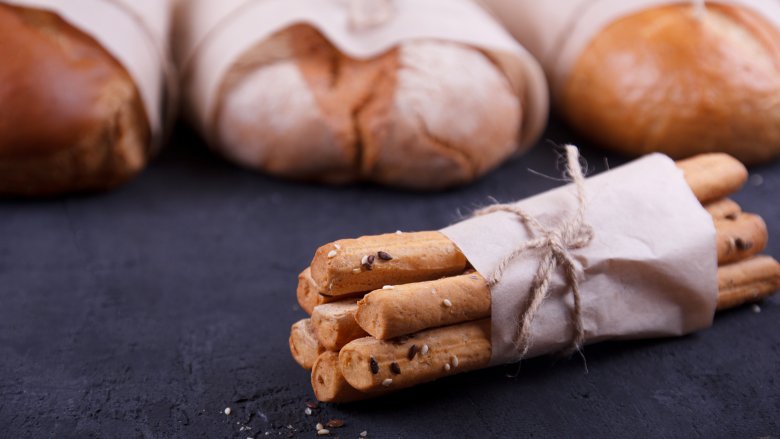Expensive Grocery Store Items You're Wasting Your Money On
When shopping at the grocery store each week, it can be hard to tell if you're getting a good deal. We all want to buy quality food to nourish ourselves and our families, but which foods are really worth it?
The grocery bill can quickly add up when gone unchecked, so it's crucial to be discerning with what ends up in your cart. Here are just a few items that are a big waste of money.
Infused olive oil
Infused olive oil is a serious treat. The smell and taste it can add to your meal is incredible, but the infused olive oils at the store are grossly marked up in price. "I discourage purchasing infused oil and vinegars," said New York City chef and culinary producer Clare Langan. "They are so easy to make yourself and often go rancid before you've used them. How many recipes can you really use that roasted garlic olive oil [with]?"
Instead of buying that pricey bottle at the store, make small batches of your own at home. This way you'll save money on the ingredients and will be less likely to waste the extra oil.
Organic quinoa
Doesn't organic quinoa sound healthy? It's one of those products that ends up in your shopping cart, not because you need it, but because it makes you feel better about your food choices. However, even though the organic quinoa is more expensive, it is not any healthier. Most quinoa does not require pesticides to grow it, so buying organic doesn't matter.
"People may use pesticides, but quinoa doesn't need them, since it has a coating that contains bitter-tasting saponins, making the crop nearly impermeable to pests," Associate professor of food studies at New York University Carolyn Dimitri told Real Simple. Go for the regular quinoa instead. You can still consider yourself a healthy foodie.
Fresh fruits and vegetables
I have always assumed that it's cheaper to buy fresh fruits and vegetables as opposed to frozen, but it may be time for me to rethink that. Frozen produce is often cheaper and may even have more nutrients than the fresh varieties.
"Buy frozen as much as you can, because it tends to have higher nutrients from the flash freeze process compared to fresh items that may have traveled thousands of miles," Logie told me. "We also tend to throw out around 20 pounds of fresh produce every month." Buying frozen helps ensure that we use up what we have before buying more then following week.
Buying frozen is especially helpful when it comes to organic. "I started realizing that purchasing fresh organic or even fresh non-organic produce added up fast, and most of the time we didn't eat it fast enough before it would spoil. But I could purchase frozen bags of produce for the more expensive items and save us a ton," agreed financial coach Jessi Fearon. "Like frozen kale, frozen broccoli, and frozen green beans. That has freed up enough room in our grocery budget to purchase other produce fresh that doesn't freeze as well, such as tomatoes, squash, and zucchini."
Fresh seafood
Frozen is also the way to go to save on seafood. Many stores mark up their fresh seafood, but it may have come off the same truck as the frozen packages. "Go for frozen seafood over 'fresh.' Seafood needs to be brought in frozen and then thawed in the store," explained Logie. "These fresh items can cost as much as 40 percent more than the exact same thing that's frozen." Buying bags of frozen seafood also helps with the waste concern. You can cook just a little at a time, as opposed to trying to use up the fresh seafood before it spoils. Buying frozen will also keep your car smelling better on the drive home. No one likes getting into a fishy car, am I right?
Filet mignon
A seared filet mignon sounds like the perfect birthday or anniversary meal, but when it comes to your weekly shopping, there are smarter ways to buy steak. "If you like steak, buy the whole T-Bone steak, especially if you're a fan of filet mignon," explained Logie. "Every T-bone has a small filet mignon on the bone and a New York strip on the other side, and this can save you $3-$5 per pound."
This is a pretty easy and painless way to save money while still getting the food you want. If you're planning to make steaks for a friend's barbecue, make sure to save with the bone-in version.
Boneless chicken breasts
I buy boneless, skinless chicken breast just about every week. It has gotten to the point where I don't even think about it anymore. I know we will use it, so I automatically toss it in the cart. However, I think I'm going to branch out.
"Buy chicken breast with the bone in, as this can cut the price in half," said Logie. "Along with that, boneless skinless chicken thighs can save you around $2.50 per pound over chicken breast. The thighs tend to not dry out as quick as the breasts either." This makes them easier to cook and juicer to eat. Win-win.
Bottled water
Bottled water is a convenience that can add up quickly. It's also usually just not worth it. "Bottled water really isn't a good deal," Logie told me. "A lot of times it's not much different than your own tap water, and the store variety can cost you up to a dollar per bottle." If you prefer filtered water, invest in your own filter and ditch the bottles. It'll be better for your wallet and the environment.
Low-carb bread
If you've been cutting back on carbs, you've probably been having dreams about a fresh piece of crusty bread. However, just because you miss it so much, doesn't mean low-carb bread is the answer. It can cost $7-$8 for a loaf — and never tastes as good. Instead, splurge on a quality loaf of whole wheat bread. You'll get more nutrients, and it'll actually taste like bread.
Super food powders
It's hard to walk through the supplement aisle at Whole Foods or any natural grocery store and not be intrigued. All the labels say things like, "weight loss" and "vibrant." Who doesn't want those things? However, there's one other detail the labels won't tell you. The supplement industry is unregulated, which means they can say anything they want — and never have to prove it. Expensive supplements and herbal remedies claim big results, but there are no guarantees. Stick to the fresh fruits and vegetables for natural nutrients and energy.
Cold pressed juices
Tossing a cold pressed juice in your grocery cart feels healthy and almost undoes that box of Lucky Charms. How did that get there? However, that juice is actually going to spike your blood sugar, just like the cereal will.
Cold pressed juices can cost up to $12 for a serving, and while they are filled with fresh fruits and vegetables, they're stripped of the fiber that's naturally in the fresh produce. That means that when we take a drink, our blood sugars will rise without any fiber to regulate it. So we'll be in for a sugar crash later. We'll also be drinking our calories and never feeling full. Skip the cold pressed juice and go for the actual fruit.
Vegan cookies
When you're trying to eat healthy and really missing junk food, you start to make irrational decisions, like eating an entire box of vegan cookies. They're vegan, so they must be healthy, right? Unfortunately, they're no healthier, just a lot more expensive.
"Think about it this way: A vegan chocolate chip cookie may be dairy-free and/or made with organic or raw ingredients, but it can still be 240 calories with 39 grams of carbs, 19 grams of which come from sugar," registered dietitian Tanya Zuckerbrot told Fox News. "A small order of McDonald's fries has less carbohydrates, sugar, and calories than that! White sugar is vegan, flour is vegan, chocolate chips can be vegan, and just because a cookie is made with these does not mean it's worth you biting into."
Organic avocados
Buying organic produce always sounds like the healthy choice, but beware, especially when it comes to fruit with a thick peel. Organic avocados are marked up quite a bit from regular ones, and the "organic" label doesn't really matter for them. "Foods that have to be peeled, like bananas and avocados, tend to have a much lower number of residues when those foods have been prepared to eat," Environmental Working Group spokesperson Alex Formuzis told Real Simple. Save some money and go for the regular avocados. Your guacamole will be just as delicious.
Fancy labels
We all know food companies are marketing to us, but it's still easy to get sucked into the clever packaging. "Be wary of anything with a label. Brands often use eye-catching graphics to lure you into purchasing their product," New York City chef and culinary producer Clare Langan told me. "Jams, 'artisan' crackers, and even granola can appear to be more valuable with the right packaging."
Jamie Logie, nutritionist, health and wellness coach, agrees with being cautious of brand name labels. "Go for the generic store brand versions, which are cheaper and most often contain the same products found in the more expensive brand versions," advised Logie. Make sure you're paying for quality food, not quality advertising.
